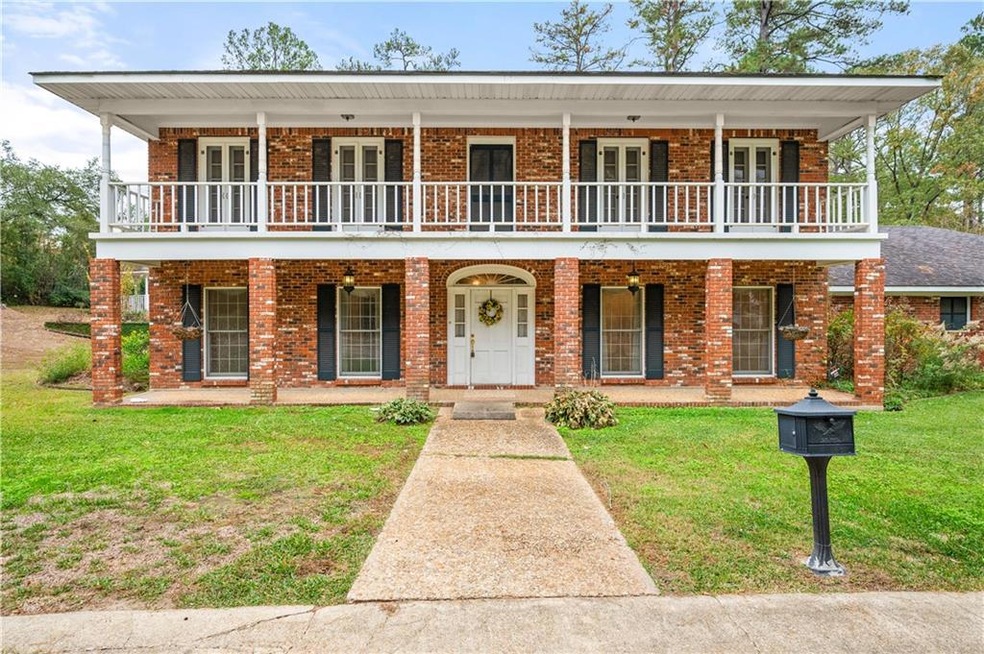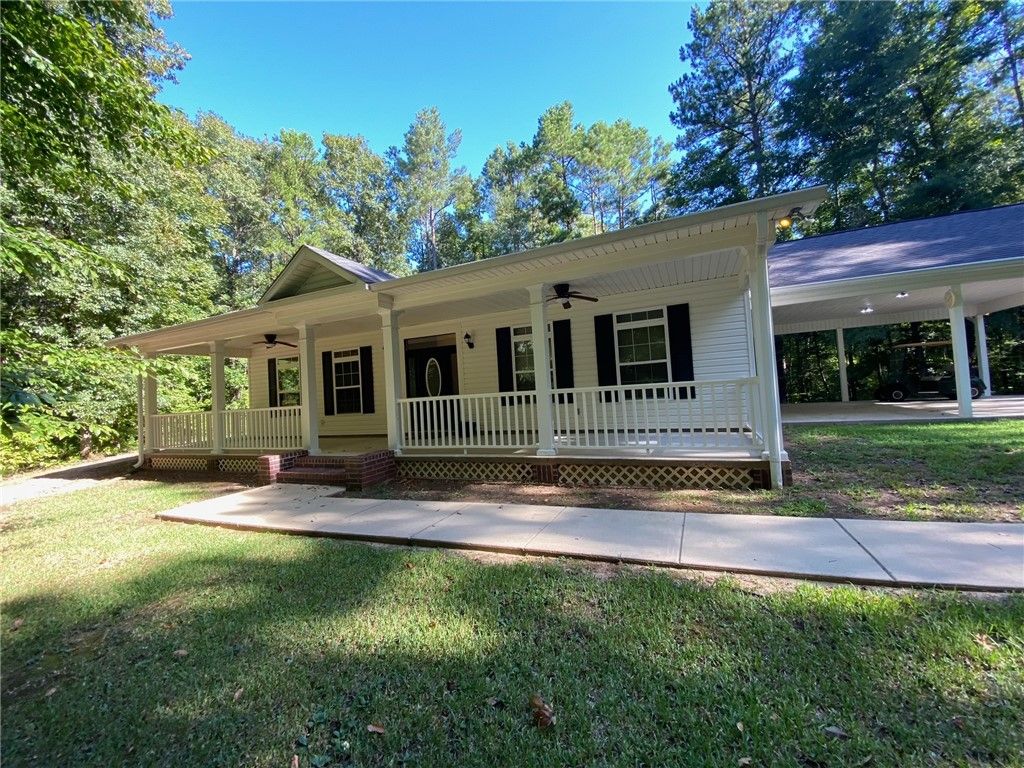Homes For Sale In Winnfield La – A car is something that can hold a great deal of sentimental value. Self-help books and motivational speakers promise to sell us the tools to fix ourselves, to buy into a better version of who we could be. On the other hand, traditional industries such as brick-and-mortar retail or manufacturing may face challenges, with many businesses in these sectors looking to sell or transition due to changing market conditions. The culture of buying second-hand goods is rapidly shifting in the modern world, particularly among younger generations. The due diligence process helps the buyer understand the risks involved, the company’s market potential, and any legal or operational hurdles that may exist. On the other hand, buyers may seek to negotiate lower terms based on the findings from their due diligence or their assessment of the business’s future potential. Acquiring an established business can provide a head start in terms of customer relationships, operational systems, and brand recognition. This revival can be attributed to a combination of economic factors, growing awareness of environmental issues, and a shift in consumer attitudes toward sustainability and the value of pre-owned items. They are investments, not just purchases, and their value is often felt long after the original transaction has ended. In this sense, purchasing pre-owned items can be seen as a form of social responsibility, as it helps create a positive impact that extends beyond the individual buyer. Entrepreneurs can launch businesses from their homes, and freelancers can offer their skills to clients across the world. When a business is put up for sale, it is typically the result of a variety of reasons, each unique to the situation at hand. The struggle is not in resisting the marketplace entirely, but in finding balance, in ensuring that the things that truly matter cannot be bought, sold, or traded. For the seller, there is the risk that they may not be able to find a buyer who is willing to pay the desired price, or that the sale may not go through as planned. Every click, every like, every follow, is part of an ongoing transaction. Additionally, many second-hand items are still in excellent condition, having been gently used or well-maintained by their previous owners, further enhancing the appeal of these products. Whether it’s funding education, supporting homelessness services, or providing medical assistance, the money spent in second-hand shops can contribute to making a difference in the lives of others. Social movements and grassroots organizations work tirelessly to provide resources and support to those who need it, often without expecting anything in return. They remind us that, despite living in a world where everything is for sale, there are some things that remain priceless. The artist who created it may have one understanding of its worth, while a collector may see it as a valuable investment, and a casual admirer might simply appreciate its beauty without considering its monetary value.

Winnfield, LA Real Estate Winnfield Homes for Sale
Estimated home valuessave your search filtersresearch neighborhoods

21 Pine Terrace Dr, Winnfield, LA 71483 MLS 2424735
Estimated home valuessave your search filtersresearch neighborhoods

Winnfield, LA Real Estate Winnfield Homes for Sale
Estimated home valuessave your search filtersresearch neighborhoods

Winnfield, LA Real Estate Winnfield Homes for Sale
Estimated home valuessave your search filtersresearch neighborhoods

Winnfield, LA Real Estate Winnfield Homes for Sale
Estimated home valuessave your search filtersresearch neighborhoods

Winnfield, LA Single Family Homes for Sale
Estimated home valuessave your search filtersresearch neighborhoods

129 Dogwood Dr, Winnfield, LA 71483 Trulia
Estimated home valuessave your search filtersresearch neighborhoods

579 Country Club Rd, Winnfield, LA 71483 MLS 167985 Trulia
Estimated home valuessave your search filtersresearch neighborhoods

Winnfield, LA Real Estate Winnfield Homes for Sale
Estimated home valuessave your search filtersresearch neighborhoods

Winnfield, LA Real Estate Winnfield Homes for Sale
Estimated home valuessave your search filtersresearch neighborhoods
Technological advancements and shifts in consumer behavior can also impact the types of businesses that buyers are interested in. Self-help books and motivational speakers promise to sell us the tools to fix ourselves, to buy into a better version of who we could be. Some need the money, some want to declutter, and others might feel the urge to let go of possessions as they enter new phases in their lives. Similarly, during periods of economic growth, there may be a greater willingness to spend on luxury second-hand items, such as high-end fashion or collectible items. These items are often crafted with a sense of purpose, where every stitch, joint, and component is carefully considered to create a product that not only functions well but looks beautiful in the process. The market for second-hand goods is also influenced by societal trends and economic conditions. For sellers, online platforms can expand their reach to a global audience of potential buyers, increasing the chances of finding the right match for their business. Quality goods transcend trends and fleeting fads. Whether it’s the affordability, the environmental impact, or the opportunity to find unique items, second-hand goods provide an alternative to traditional retail shopping that is both practical and sustainable. The truth is that the idea of quality is deeply rooted in the philosophy of craftsmanship, heritage, and trust, which explains why certain items, often categorized as quality goods, tend to be prized more than others, even when they may come with a higher price tag. The online second-hand market has also made it possible for people to buy and sell niche items that may not be available in local stores. The concept of a circular economy, where products are reused and repurposed instead of discarded, is central to the appeal of second-hand goods. The practice of buying and selling second-hand items has been around for centuries, but in recent years, it has seen a resurgence. Love becomes about what someone can provide in terms of material or emotional benefit, and friendships become alliances, where loyalty is traded for favor or influence. In fact, there’s been a resurgence of interest in artisanal, locally-made products, especially in industries like fashion, home decor, and food. This typically involves drafting and signing a sale agreement, which outlines the terms and conditions of the transaction. For sellers, the market for second-hand goods offers an opportunity to declutter their homes and make some extra money. In some cases, it’s not just objects that are for sale, but entire industries or institutions. Quality goods stand in stark contrast to this cycle. The global marketplace, with its constant buying and selling, influences everything from politics to the environment, creating ripple effects that are felt far beyond the immediate transaction.
These goods, once owned and used by someone else, offer a unique opportunity for both sellers and buyers to exchange items that might otherwise go unused. When we begin to view everything through the lens of commerce, it’s easy to lose sight of the things that make life worth living — the moments that aren’t for sale, the experiences that can’t be bought. However, it’s also important to recognize the darker side of this freedom. The world of second-hand shopping has also made quality goods more accessible. In conclusion, the sale of a business is a complex process that involves numerous steps, from identifying the right buyer or seller to completing due diligence and negotiating the terms of the transaction. The democratization of commerce has opened up opportunities for millions of people, giving them the chance to pursue their dreams and create their own paths to success. On the other hand, traditional industries such as brick-and-mortar retail or manufacturing may face challenges, with many businesses in these sectors looking to sell or transition due to changing market conditions. Moreover, buying second-hand items allows consumers to access unique and vintage products that may no longer be available in stores, offering a sense of individuality that is often missing from mass-produced, new items. After the sale is complete, the buyer assumes responsibility for the business and takes control of its day-to-day operations. On the other, there’s the challenge of assessing the true value of a business, navigating the complex negotiations, and ensuring that the business is a sound investment in terms of both its financial health and its long-term viability. The struggle is not in resisting the marketplace entirely, but in finding balance, in ensuring that the things that truly matter cannot be bought, sold, or traded. Millennials and Gen Z, in particular, have embraced the idea of second-hand shopping as a way to challenge consumerism, reduce waste, and express their individuality. For the buyer, it can feel like a great opportunity, a chance to acquire something they’ve been searching for, or maybe just the satisfaction of knowing that a good deal is within reach. It carries the marks of life’s moments: the road trips, the adventures, the daily commutes, the memories of friends and family. The marketplace for second-hand items continues to grow, driven by economic, environmental, and cultural factors. For many, purchasing second-hand goods is not only a practical and affordable choice but also an environmentally conscious one. Vintage clothing, in particular, has gained a significant following, with people seeking out unique, one-of-a-kind pieces that cannot be found in mainstream stores. The environmental benefits of buying second-hand goods go beyond just reducing the need for new production. Acquiring an established business can provide a head start in terms of customer relationships, operational systems, and brand recognition. This has made it easier for people to find items that might have otherwise been out of reach, whether it’s a rare collectible, an antique, or a product from another country.